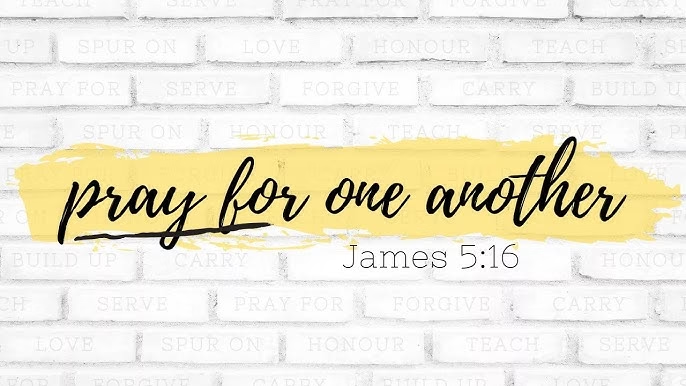Pray for One Another: Exploring the Power of Biblical Intercession
In today’s fast-paced world, the importance of community and mutual support can sometimes be overlooked. Yet, the Bible consistently emphasizes the power of prayer, particularly when it comes to praying for one another. As believers, we are called to uplift, encourage, and bear one another’s burdens through prayer. In this blog post, we will explore key Bible verses that encourage prayer for others, discuss the significance of this practice, and offer practical tips on how to incorporate it into our daily lives.

The Biblical Foundation of Intercessory Prayer
Intercessory prayer, or praying on behalf of others, is a central theme in the Bible. It reflects love, compassion, and a commitment to the spiritual and emotional well-being of those around us. Here are a few key verses that showcase this principle:
- James 5:16: “Therefore confess your sins to one another and pray for one another, that you may be healed. The prayer of a righteous person has great power as it is working.”
- 1 Thessalonians 5:11: “Therefore encourage one another and build one another up, just as you are doing.”
- Ephesians 6:18: “Praying at all times in the Spirit, with all prayer and supplication. To that end, keep alert with all perseverance, making supplication for all the saints.”
These verses illustrate not only the command to pray for one another but also highlight the blessings that unfold through such practices.
Why Should We Pray for One Another?
1. Strengthening Community Bonds
Praying for each other fosters strong, supportive relationships within the community. When we bring our concerns and joys before God collectively, we create a deeper connection with each other. This unity can lead to:
- Enhanced trust and openness.
- Shared experiences of faith and vulnerability.
- A greater sense of belonging.
2. Uplifting One Another
Everyone faces challenges in life—whether they are spiritual struggles, health issues, or personal setbacks. By praying for one another, we:
- Offer comfort and encouragement in difficult times.
- Stand in solidarity with those who are suffering.
- Remind others they are not alone.
3. Invoking Divine Intervention
While we may support each other through words and actions, it is ultimately God who brings about change. When we intercede for others, we:
- Tap into the immense power of prayer.
- Invite God’s presence and intervention in various life situations.
- Align our hearts with God’s will for those we are praying for.
Practical Steps to Pray for One Another
Incorporating the practice of praying for one another into our lives can be both fulfilling and transformative. Here are some practical steps you can take:
Create a Prayer List
Keeping a dedicated list of prayer requests can help you remember individuals and their specific needs. This could be a physical list or a digital note accessible on your phone.
- Include names: Write down the names of friends, family, church members, or anyone in need of prayer.
- Specify requests: Beside each name, note the specific prayer needs (e.g., health issues, job searches, family struggles).
Set Aside Time for Prayer
Schedule regular times to pray over your list. This could be at morning devotionals, during lunch breaks, or before bedtime.
- Consistency matters: Establishing a routine can help make praying for others a habit rather than an afterthought.
- Seek moments of solitude: Find a quiet place where you can focus on your prayers without distractions.
Share Prayer Requests with Others
Engage your community by sharing prayer requests during small groups, church services, or even through social media. This allows for collective prayer and shows the unity of believers.
- Encourage participation: Invite others to share their prayer needs and pray for each other collectively.
- Follow up: Check in with those you’ve prayed for. Encourage them to share updates, which can inspire continued prayers and support.
Use Scripture as a Guide
Incorporating Bible verses into your prayers can be powerful. Consider praying through the Psalms or specific verses for healing, guidance, or peace.
- Example passages: Psalms 23, Psalms 31, and Philippians 4:6-7 can provide comfort and direction in prayer.
Concluding Thoughts
The act of praying for one another is more than just a religious duty; it is a profound expression of love, solidarity, and faith. By following the Biblical commandments to pray for each other, we can strengthen our relationships, bring comfort to those in need, and invite God’s transformative power into our communities.
As we commit to this practice, let us remember the words of James 5:16—”The prayer of a righteous person has great power as it is working.” So, let us take this to heart, uplift one another in prayer, and witness the incredible changes that can unfold as a result. After all, in prayer, we find not just a connection to God, but also a deeper bond with each other as members of His family.



